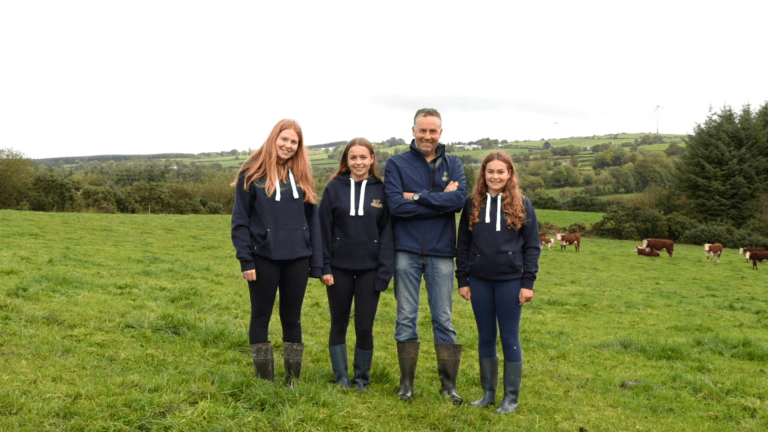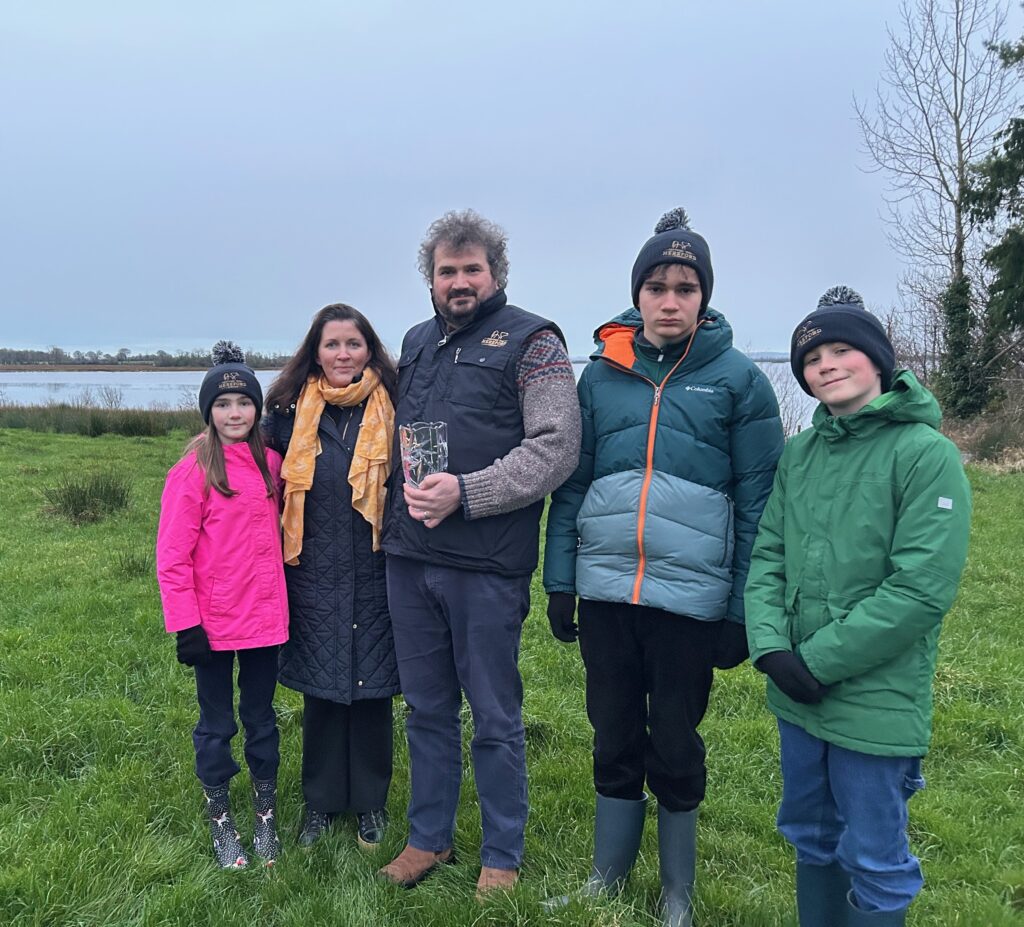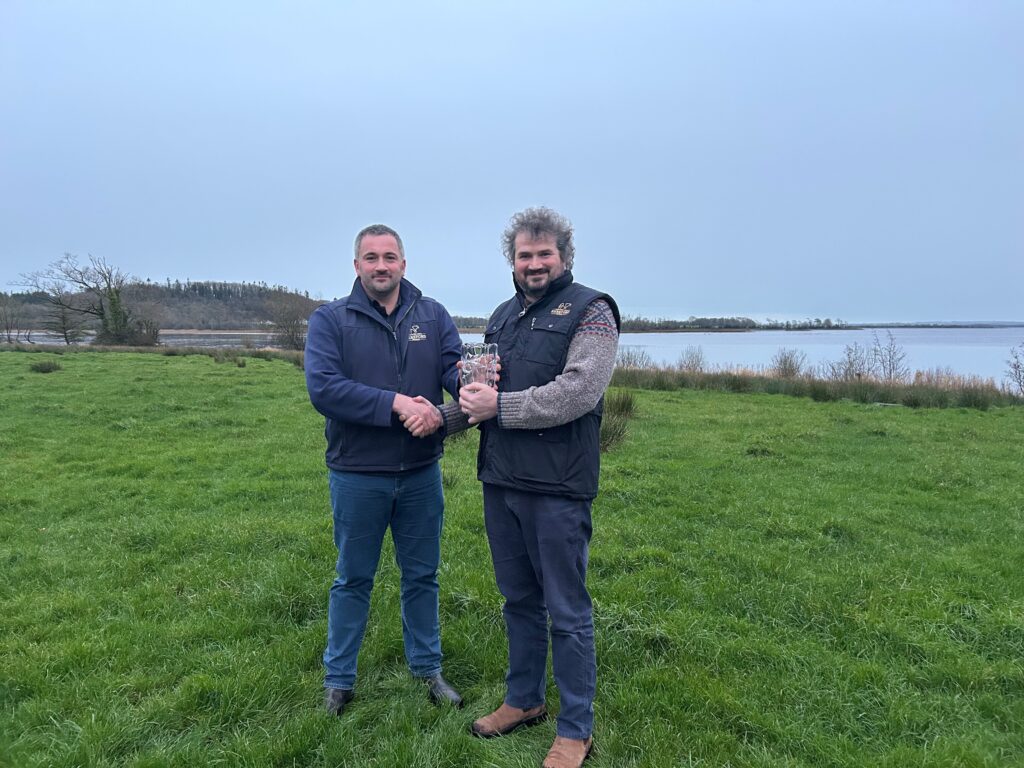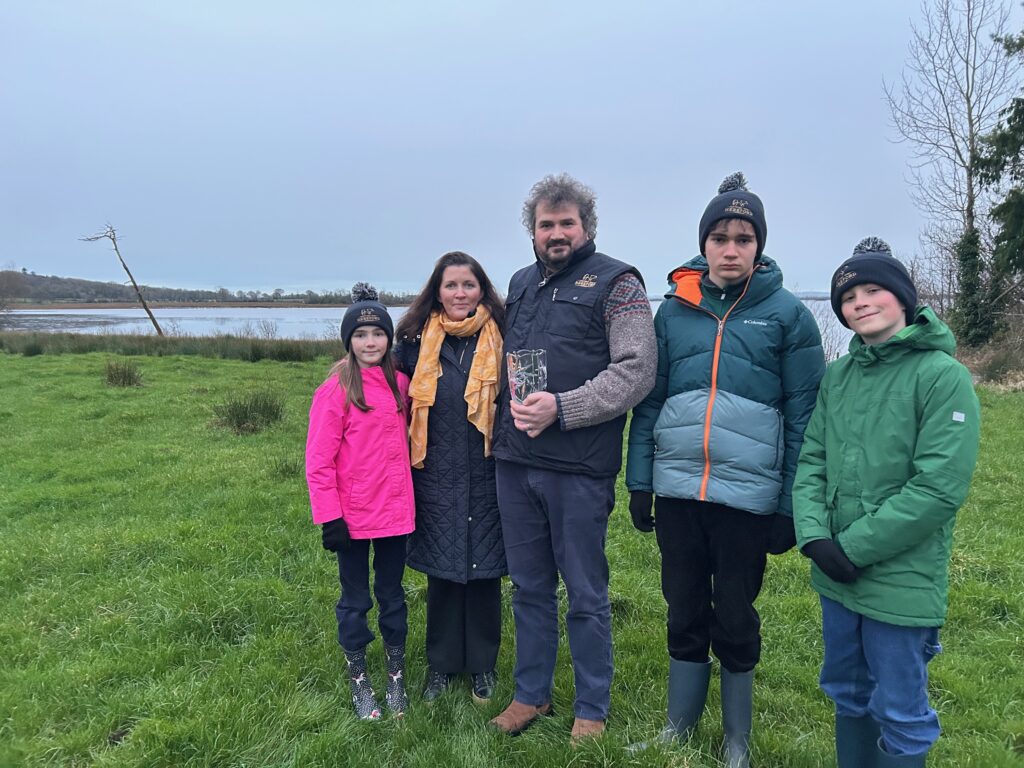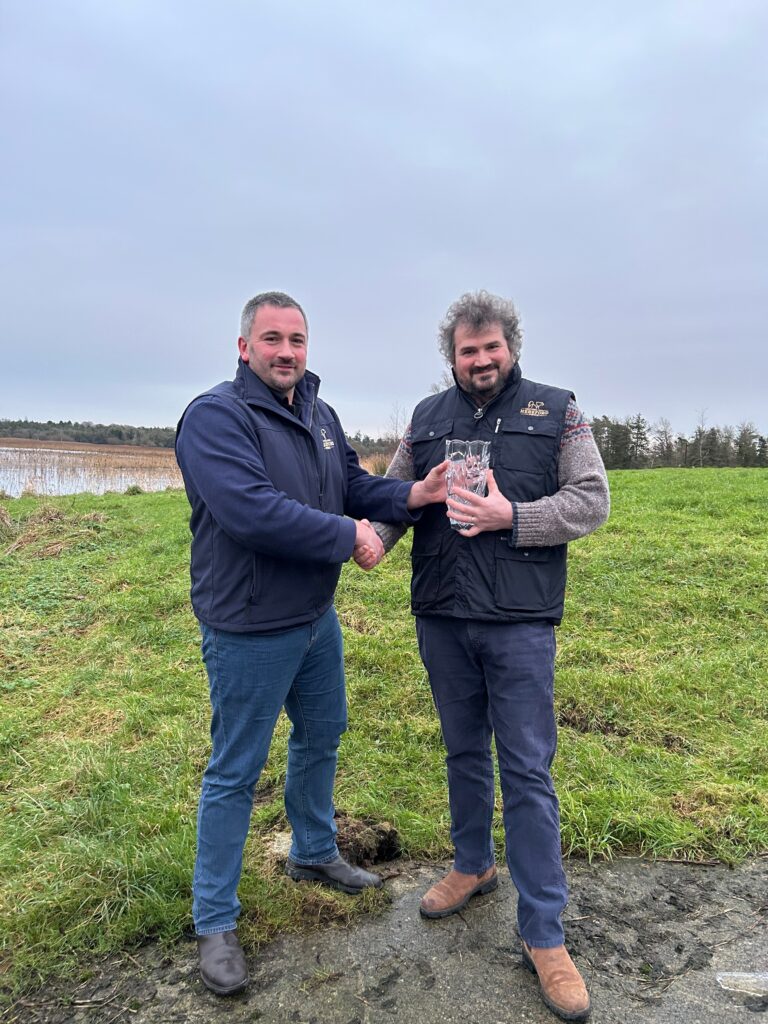A dedicated part-time farmer, Mervyn runs a suckler-to-beef system dominated by Hereford genetics, with over 95% of his stock being Hereford cattle. He farms alongside his wife, Karen, and their three children – Andrew (15), Elliot (14) and Ruth (10).
Balancing his off-farm work commitments, Mervyn opts to use a pedigree Hereford bull, sourced from local breeder William Jones of the Keenagh herd, to run with his Hereford-cross cows instead of using artificial insemination (AI). He also adds to his herd by purchasing Hereford-cross store cattle from Ballymahon Mart, which has experienced a strong resurgence in cattle sales.
All male cattle are finished as steers, except for a select few pedigree bull calves intended for local dairy farmers seeking an easy-calving beef sire for their Friesian cows. Stock are finished on-farm, with strong performance figures recorded over recent years. Steers achieve an average carcass weight of 330kg at 23.5 months, while heifers reach 266kg at 18.5 months. Impressively, almost half of Mervyn’s Hereford-cross heifers and steers grade R for conformation.
